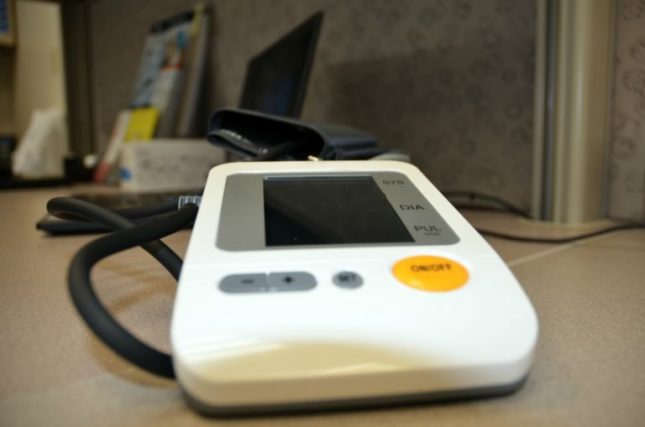The continued education and availability of digital home blood pressure monitors for low income patients in the Nephrology Clinic will be made possible for another year due to funding from the Renal Staff Microgrant Program. The Microgrant Program funds projects that will improve the overall care of our dialysis patients and make a positive difference in their lives.
The ambulatory blood pressure monitoring program, originally funded in December 2015 and renewed in 2017, is currently being helmed by the team of Barbara Schmaltz, RN, Jane Stromberg, MSW, Joanne Lauber, RN, and Will Ross, MD.
 Managing blood pressure is critically important in slowing the loss of kidney function in patients with chronic kidney disease. Using the portable monitors, patients are able to take their blood pressure at home and then call in their readings into the clinic. Adjustments to their medication can be made over the phone, saving the patient a trip to the clinic.
Managing blood pressure is critically important in slowing the loss of kidney function in patients with chronic kidney disease. Using the portable monitors, patients are able to take their blood pressure at home and then call in their readings into the clinic. Adjustments to their medication can be made over the phone, saving the patient a trip to the clinic.
Barbara Schmaltz, Nurse Manager, Renal Outpatient Office, says, “Knowing that our patients are able to conveniently and accurately measure their blood pressures at home provides a level of reassurance that between provider visits we can see how our patients are doing.”
The grant also provides medication planners, if needed. Many patients have complicated medication regimens, and pill planners help simplify medication management for the patients, family members and caregivers.
In 2016, 30 patients enrolled in the program; the program provided education and monitors for another 45 patients in 2017. Support for the program has been overwhelmingly positive. All nephrology physicians have referred one or more patients for participation in the program.
The program fosters improved patient-staff communication and patient medical compliance.
“Home blood pressure management enhances the likelihood of achieving targeted blood pressure while promoting chronic disease self-management,” says Dr. Ross, Senior Faculty Advisor of the project. Approximately 70% of the patients who call in their readings regularly have seen a significant improvement in their blood pressures.
The team is currently working to encourage all participants to call in their readings weekly.